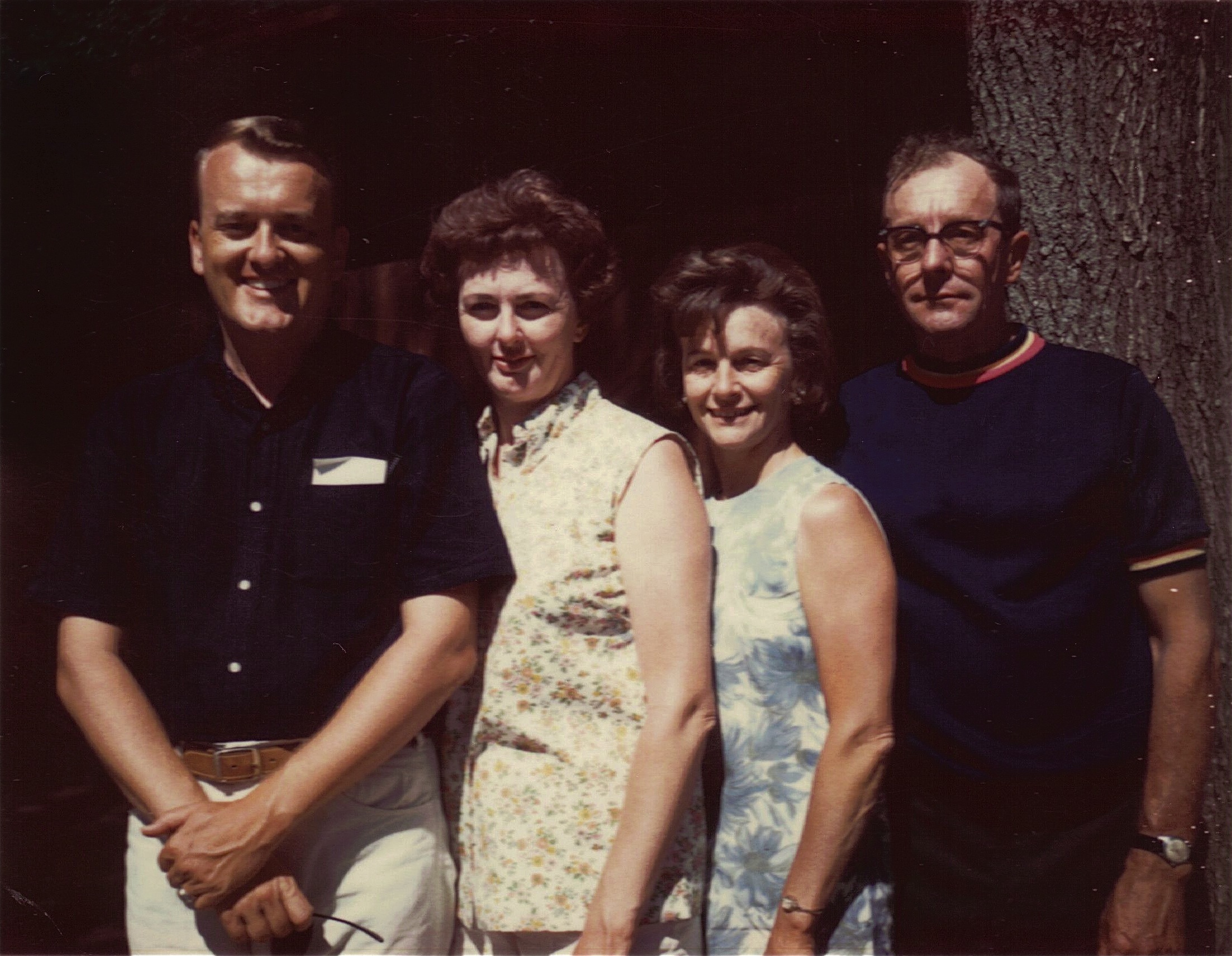Uncle Ralph
Late one cloudy October afternoon, my sister sent me an email with the two-word subject “Uncle Ralph.” I knew before opening it what the email would say. I knew it would say that Uncle Ralph had died.
I stared at the screen. I was in an open office, sitting close to people working quietly on their computers. As long as I didn’t read the email, Uncle Ralph was still alive.
I calculated the time to finish my workday, endure the tedious subway ride to Brooklyn and walk home from the Kingston-Throop stop. Waiting until I got to my apartment to read my sister’s message seemed wrong, but so did reading it in a public place.
I clicked on the email. I learned Uncle Ralph had indeed died. He was 90. The news felt like a punch to the stomach.
I wondered why the fact of his death felt so powerful. We weren’t very close; I hadn’t seen or talked to him—or to any of my relatives in rural Minnesota—for more than a decade. I’d missed the milestone of his 90th birthday, and his 80th as well.
My sister mentioned he’d had emphysema and heart issues, although it was too soon to know the exact cause of death. Uncle Ralph was a lifelong smoker. Pall Malls. Could have been a heart attack, I thought.
When my mom died of a sudden heart attack at the much younger age of 64, I learned the devastating reality that death can come at any age. But Uncle Ralph had lived a long life. Shouldn’t that factor mitigate the surprise? Still in work mode, I tried to intellectualize the news. And yet, I was shaken.

Dad, Audrey, Betty, Ralph
I don’t have many photos of my uncle. This picture of my dad and his three siblings is from July 1968. I was 5 years old, and my family was visiting the Minnesota relatives, as we did every summer. The lineup is arranged by age—youngest to oldest. To me, the emotional distance between the two brothers is as apparent as their physical distance. I didn’t know much about what caused the friction between my dad and his brother, but their relationship affected my own relationship with my uncle. I never spent time with him, never really got to know him. He was always sweet to me—he cracked jokes, played cards with me, even took me fishing once—but there was an awkwardness that we rarely succeeded in overcoming.
I don’t know what, if anything, was going on before this Polaroid was snapped, but my dad’s smile and my uncle’s lack of one capture something of their lifelong differences. The baby of the family and the firstborn son. The younger brother who went to college and the older brother who went to work. The Robinson who moved out of town, out of state, and settled in a city and the Robinson who stayed behind and traveled familiar gravel roads.
Minnesota is extremely flat, and my grandparents had a grove of trees that sheltered the farmhouse from the winter winds that whipped across the plains. In this photo, my father and his siblings stand like a windbreak, as sturdy as the elm tree behind my uncle. I never realized what this human windbreak was sheltering, but now I think it was sheltering me. As long as this generation stood, I would not have to think about death, I would be protected from it.
.jpg)
Dad and Audrey
Now, only Dad and Aunt Audrey are left standing. With my uncle’s death there’s extra space in the picture, and I think about my father’s death, my aunt’s death, my own.
After my grandmother died in the 1990s, I stopped going back to Minnesota. I realize now it was a response to deep grief at her passing: an attempt to sever emotional ties to my childhood, as if I could preemptively control the feelings of grief that come with loss.
Uncle Ralph made me realize I didn’t sever those ties at all.
Post a Comment
Blogs by Author
Alix Kates Shulman
Ashton Applewhite
Bob Bostock
Flora Davis
Liz Seegert
Maggie Sullivan
Margaret Cruikshank
Margaret Morganroth Gullette
Megan Kearns
Pepper Evans
Pete Croatto
Victoria Robinson
Blogs by Date
2017
- December (2)
- November (3)
- October (2)
- September (2)
- August (5)
- July (3)
- June (6)
- May (5)
- April (5)
- March (6)
- February (4)
- January (3)
2016
- December (4)
- November (3)
- October (5)
- September (5)
- August (5)
- July (5)
- June (5)
- May (5)
- April (4)
- March (6)
- February (6)
- January (2)
2015
- December (3)
- November (7)
- October (6)
- September (5)
- August (4)
- July (6)
- June (7)
- May (5)
- April (6)
- March (6)
- February (3)
- January (6)
2014
- December (4)
- November (1)
- October (6)
- September (1)
- August (3)
- July (5)
- June (3)
- May (2)
- April (4)
- March (4)
- February (2)
- January (1)
2013
- October (3)
- September (4)
- May (1)
- February (1)
2012
- December (2)
- September (2)
- January (1)
Our Mission
The Silver Century Foundation promotes a positive view of aging. The Foundation challenges entrenched and harmful stereotypes, encourages dialogue between generations, advocates planning for the second half of life, and raises awareness to educate and inspire everyone to live long, healthy, empowered lives.
![]()
"It is not by muscle, speed, or physical dexterity that great things are achieved, but by reflection, force of character, and judgment; in these qualities old age is usually not poorer, but is even richer."
Cicero (106-43 BC)
